Review: How to Love a Country, Poems
by Richard Blanco.
Beacon Press, 2019.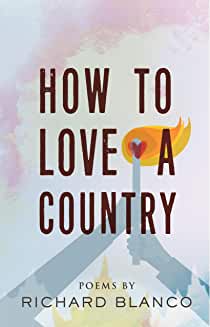
I read a fair amount of poetry. I visit Poetry Daily almost daily. https://poems.com/ I don’t linger long over the many poems that remain obscure even after I puzzle over them, that seem to contain secrets known only to the poet. I just print the poems I like and save them in a three-ring notebook.
Though I took one poetry course in college, I remember very little about technical matters, such as the different forms and meters, so it may be presumptuous for me to review a book of poetry. But like music, poetry can speak straight to the heart. In a time when I, like many others, am frightened by the state of our world and our country, grieving at the evil done with our dollars and in our names, this book spoke to me.
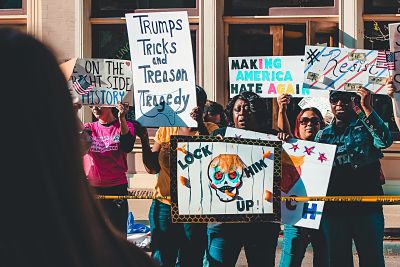 Photo by Rosemary Ketchum from Pexels
Photo by Rosemary Ketchum from Pexels
Richard Blanco was the inaugural poet at Obama’s second inauguration. In his author’s note at the end of the book, he tells us, “…as the first latinx, immigrant, and gay man” in that role, he realized that his story “…is and has always been, a grand part of our country’s historical narrative.” Born in Madrid to Cuban immigrants, who moved to Miami when he was less than two months old, he is torn between the Cuban he imagines, and the American he is. “Destined to live with two first languages, two countries, two selves, and in the space between them all.” From these dualities comes compelling poetry.
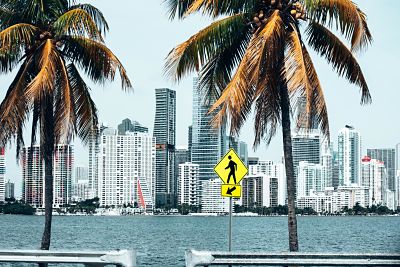 Photo by Joe from Pexels
Photo by Joe from Pexels
He imagines how it was for his mother leaving Cuba, and wonders at her fierce love for her new country – “to love a country as if you’ve lost one.” When they visit DC she tells him, “You know, mijo, it isn’t where you’re born that counts, it’s where you choose to die – that’s your country.” He sang America the Beautiful in church with his mother – “…we sang our thanks to our savior for this country that saved us.” At the family’s first Fourth of July parade he sang for spacious skies “closer to those skies while perched on my father’s sun-beat shoulders.” He loves his country, “I still want to sing despite all the truth of our wars and our gunshots ringing louder than our school bells, our politicians smiling lies at the mic…”
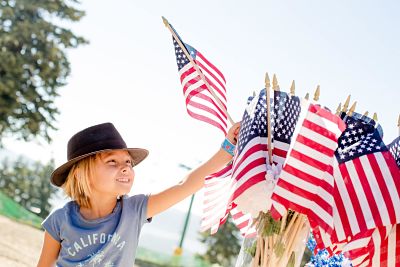 Photo by Big Bear Vacations from Pexels
Photo by Big Bear Vacations from Pexels
In “What I Know of Country” he traces his love as he grew up. “When all I knew of country was a song and a book“ – the wonderful pictures of pilgrims in buckled boots, founders in wigs with quill pens, “When what I knew of country was only what I read from a map”- the vast land of mountains and rivers and cities he’d never seen,. When even though television brought images of war, “fantasy was still all I could believe of country.” As he grew older and learned the history of exploitation, brutality, injustice, “forgiveness became my country.” “I stayed, you stayed, we stayed for all the boys and girls returning as heroes, some without legs or arms…” for the Challenger disaster, the twin towers, the children in Sandy Hook, the people waiting for rescue in New Orleans after Katrina, “…feeling what we’ve always felt: to know a country takes all we know of love.”
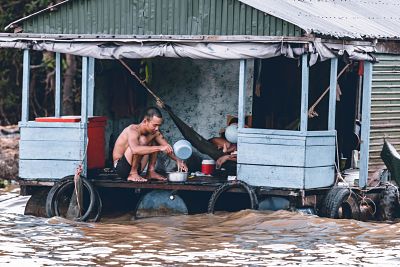 Photo by hitesh choudhary from Pexels
Photo by hitesh choudhary from Pexels
His childhood in Miami was rich with Cuban culture, but he was always an outsider. From earliest days he was different. When he wanted to play with the girls, his family was ashamed and punished him, other boys picked on him. Almost grown, searching for a life, a place where he belonged, he moved to New Orleans, then Hartford, DC, New York. Finally putting down roots in Maine, he imagines the fterrible losses of exile.
“Dawn breaks my window and dares me to write a poem brave enough to imagine the last day I’ll ever see this amber light…” He imagines losing “the spring giggles of my brook,” “the scent of my peonies or pillows.” He imagines the heartbreak of the day of departure, experiencing everything for the last time. Holding his mother and promising to return though he knows he never will, visiting his father’s grave for the last time, saying goodbye to his husband who cannot go with him. “…a poem ending as I walk backwards away from his love at my door to open another…to harden into a statue of myself.”
After the November 2016 election he staggers through town doing errands, wondering about the chasm that separates him from people he thought he knew, people now wearing MAGA hats, his thoughts flipping through every fearful event on the planet.
 photo with permission from istockphotos.com
photo with permission from istockphotos.com
In “Complaint of El Rio Grande,” he speaks as the ancient river. “I’ve breathed air you’ll never breathe, listened to songbirds before you could speak their names…before you created the gods that created you.” And then came countries, and civilization, and maps: “You named me big river, drew me, thick to divide…you split me in two, half of me us, the rest them. But I wasn’t meant to drown children, hear mother’s cries, never meant to be your geography: a line, a border, a murderer.”
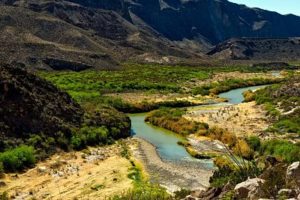 Photo by Pixabay from Pexels
Photo by Pixabay from Pexels
He writes of the fantasies of the good old days in America, shallow and silly as a 50’s sitcom. He writes of the lynching of a black man in 1981, of a mother writing a poem for the son who died while she was in prison, the rich and poor living in different worlds in the same city.
Each poem is a heartbreak, a plea, filled with love and sorrow, with yearning and anger. After the Pulse massacre, with memories of all the joyful dancers shot down, he writes, “Let’s place each memory like a star, the light of their past reaching us now, and always, reminding us to keep writing until we never need to write a poem like this again.” After the massacre at Marjorie Stoneman Douglas high school: “Seventeen dead carried down hallways they walked, past cases of trophies they won…”
 photo from pixabay at pexels.com
photo from pixabay at pexels.com
In “Declaration of Interdependence,“ a love poem to all of us, he tells us, “We’re the cure for hatred caused by despair.” He lists ‘we the people’: the farmer whose back has given out, the miner who can no longer make a living, the black boy killed by a cop, and the cop who killed the black boy. “We’re the good morning of the bus driver who remembers our name, …every door held open with a smile, …we’re the promise of one people.” He includes the Peace Corps alumni who collect African art, who reminisce about demonstrations and burning their draft cards and who now know “it’s time to do more than read the New York Times, buy fair trade coffee and organic corn.”
Blanco’s stories, his people, his courage in opening his heart, move me. I don’t know that they will move me past despair into action; I am worn out, just doing what I can in one small corner of injustice. But like the music of our great revolutionary movements – labor, civil rights, anti-war, women’s movement – his poetry can inspire and support those who are fighting to free us all from this particular troubled time.

Liz, your review is wonderful to read. No surprise that you are a published author!
I love this book and Blanco’s work. It is raw and powerful. Thank you for your wonderful review..